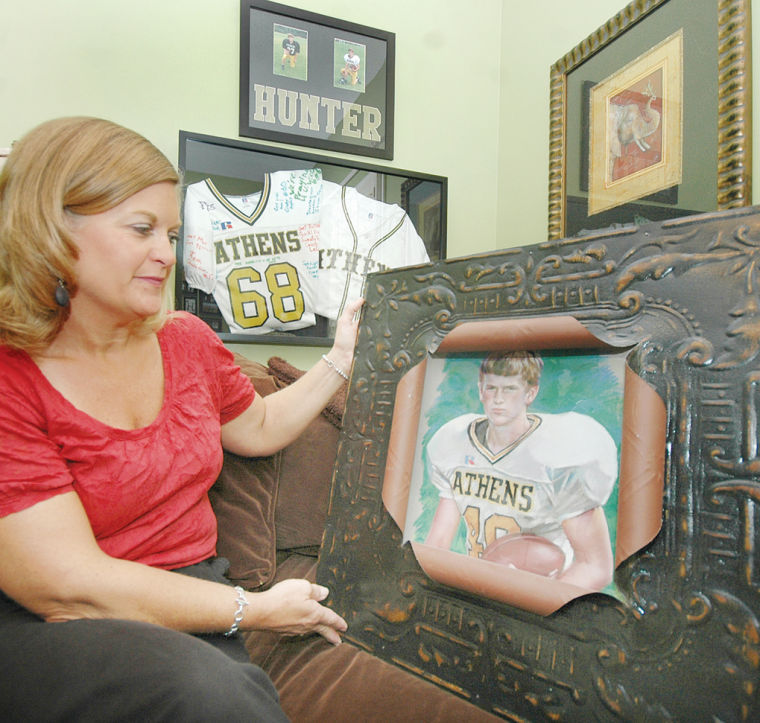Honoring Hunter: Memorial blood drive set for Sunday
Published 3:28 pm Wednesday, December 7, 2016

- JoAnne Bauer looks at a picture of her son, Hunter. This is the last picture of Hunter, which was taken by a friend a few weeks before he contracted the staph infection that would take his life.
The 12th annual Hunter Bauer Memorial Blood Drive is set for noon to 5 p.m. Sunday at the Beasley Center on the corner of Bryan and Marion streets in Athens.
Bauer, a former Athens Middle School football player, died Dec. 20, 2004, from Methicillin-resistant Staphylococcus aureus infection — MRSA — a drug-resistant staph infection.
Over the last 11 years, the blood drive has collected 907 pints, Hunter’s mother and event co-organizer JoAnne Bauer told The News Courier.
“We are truly grateful that so many have shared the gift of life in memory of Hunter,” JoAnne wrote in an email to The News Courier. “We live in one of the greatest communities, no doubt!”
To find out more, visit redcrossblood.org or call 1-800-RED-CROSS. Participants are encouraged to bring a photo ID or American Red Cross Donor Card. Blood donors who are 16-years-old and weigh at least 110 pounds and have their parents’ consent, are allowed to donate blood.
The American Red Cross allows donors to schedule appointments for donations. To schedule an appointment, call 1-800-733-2767 or visit redcrossblood.org and enter the code: HUNTERB.
Also, visit redcrossblood.org/RapidPass to streamline the donation process by completing predonation reading and health history questions on the appointment day.
MRSA, the disease blamed for Hunter’s death, enters the blood when the skin is broken. Depending on the strain of the staph, it can be resistant to most known antibiotics.
Frequent victims of the infection are young, physically active athletes in contact sports, such as football. Bacteria can spread easily through cuts and abrasions and skin-to-skin contact.
Two years after Hunter’s death, two West Limestone High School football players also came into contact with MRSA. One player was treated and cured swiftly. But the other, Tyler McClung, was hospitalized for several days with a serious staph infection on his left shin. It began as a sore on his leg and turned into a painful infection.
According to a 2006 study, many victims mistakenly thought they had spider bites that wouldn’t heal, not drug-resistant staph bacteria. Only a decade ago, these germs were hardly ever seen outside hospitals and nursing homes.





